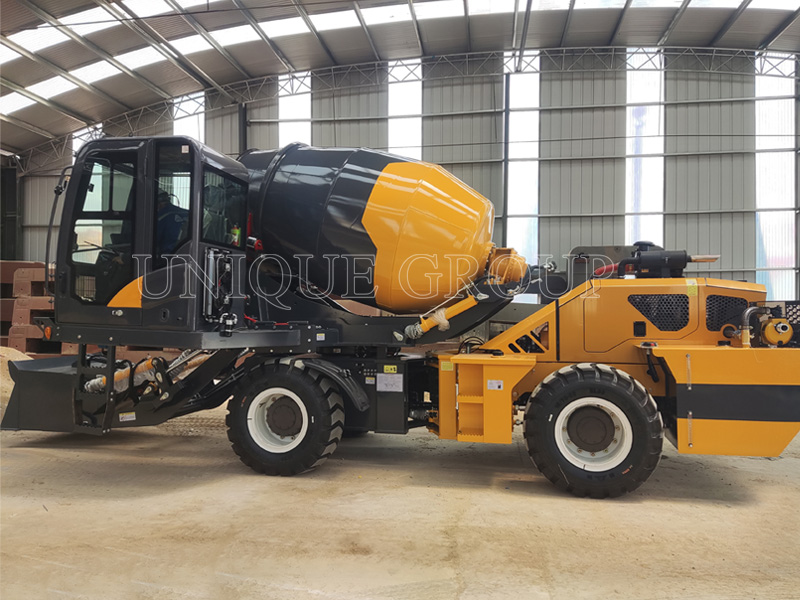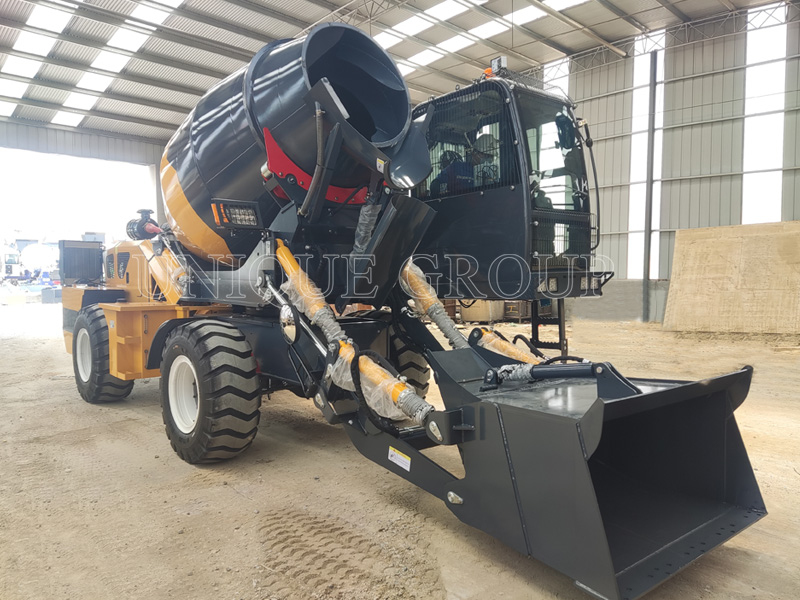Can a self-loading concrete mixer be used for other materials besides concrete?
2025-06-06 16:29:30Expanding the Applications of Self-Loading Concrete Mixers: What Else Can They Do Besides Mixing Concrete?
In the field of construction engineering, self-loading concrete mixers have become indispensable tools due to their high efficiency and convenience. However, can this equipment be used for materials other than concrete? The answer is yes, but it is necessary to conduct a reasonable assessment based on the properties of the material and the functionality of the equipment. This article will provide a detailed analysis of the application scope and usage precautions of self-loading concrete mixers, helping you make better use of this equipment.
Basic Functions of Self-Loading Concrete Mixers
Self-loading concrete mixers are multifunctional devices that combine loading, transportation, and mixing, primarily designed for mixing and transporting concrete. Their core functions include:
Automatic Loading: Using a mechanical arm to automatically load materials such as sand, gravel, and cement into the mixing drum.
Efficient Mixing: Built-in mixing blades can quickly and uniformly mix materials.
Flexible Transportation: Can be easily moved to construction sites to meet the needs of different projects.
However, whether this equipment can be used for other materials depends on the characteristics of the materials.
Materials That Can Be Processed and Usage Precautions
1. Materials That Can Be Processed
(1) Concrete-like mixtures
Mortar: Made of cement, sand, and water, it has similar mixing requirements to concrete.
Plaster: Mainly used for bricklaying and plastering, its fluidity is suitable for mixing machine processing.
Lightweight concrete: such as foam concrete, which requires attention to mixing ratios and mixing time during preparation.
(2) Dry Aggregates
Sand, gravel, crushed stone: suitable for loading and transportation without mixing functionality.
Dry powder materials: such as dry mortar, which requires careful cleaning of the mixing drum to prevent clumping.
(3) Non-Corrosive, Non-Abrasive Materials
Certain soil mixtures: such as soil improvement materials used in landscape engineering, must ensure they do not contain adhesive substances.
Specific types of dry powders: such as fertilizers or non-corrosive chemical raw materials.
2. Materials to avoid
(1) Highly abrasive materials
Rocks, ores: may damage the inner walls of the mixing drum and mixing blades.
Coarse sand or sharp particles: prolonged use may accelerate equipment wear.
(2) Corrosive substances
Acid, alkali, or salt solutions: These may corrode the mixing drum and blades, affecting equipment lifespan.
Chemical reagents: Such as strong acids or alkalis, which may damage equipment structure.
(3) Sticky or slippery materials
Wet mud or clay: These may adhere to the mixing drum walls, affecting normal operation.
High-moisture-content materials: Such as wet sludge, which may cause uneven mixing.
(4) Pure liquids or ultra-fine powders
Pure liquids: The mixing drum is not designed to handle pure liquids, which may cause leaks.
Ultrafine powders: Such as flour or talcum powder, which may block the equipment outlet.
Key considerations for using self-loading concrete mixers
1. Cleaning and maintenance
Cleaning during material changes: After each use of different materials, thoroughly clean the mixing drum and blades to prevent residues from affecting subsequent mixing performance.
Regular maintenance: Inspect the wear condition of the mixing blades and promptly replace damaged components.
2. Material compatibility testing
Before using new materials, it is recommended to conduct small-scale tests to observe mixing performance and equipment operation.
3. Avoid overloading
Follow the equipment manual to avoid exceeding its mixing capacity range, which could damage the equipment.
4. Operating procedures
Ensure operators are familiar with the equipment’s performance to prevent malfunctions caused by improper operation.
Conclusion: Multifunctionality and limitations coexist
Self-loading concrete mixers demonstrate a certain degree of versatility when mixing materials other than concrete, such as mortar and dry aggregates. However, their applicability is limited by the physical and chemical properties of the materials. Therefore, it is essential to carefully assess material characteristics before use to ensure safe equipment operation and avoid unnecessary damage to the equipment.
For further information on the use of self-loading concrete mixers or purchasing recommendations, please contact UNIQUEMAC. We will provide you with professional technical support and product recommendations.
PRODUCT TYPE LIST
NEWS
Contact Us
Address:Industrial Equipment Zone,Zhengshang Road Zhengzhou Henan
Zip: 450000 China
Fax:+86-371-63935058
E-mail:sales@unique-cons.com
TEL:+86-371-63699132








